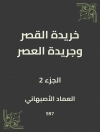In ‘Men, Women and Ghosts, ‘ Amy Lowell intricately weaves a tapestry of emotions, exploring the complexities of human relationships amidst the spectral presence of desires and regrets. This collection of poems, characterized by its modernist style, utilizes vivid imagery and free verse to convey the inner turmoil and intimacy of its subjects. Through the juxtaposition of men, women, and ethereal beings, Lowell captures the essence of love, longing, and the haunting echoes of the past, illustrating her exceptional ability to blend the tangible with the intangible, to confront and evoke both the human spirit and ghostly reminiscences. Amy Lowell, an influential figure in the Imagist movement, was known for her pioneering approaches to poetry in the early 20th century, heavily influenced by her own experiences of love and heartbreak. Her passionate commitment to form and structure, coupled with her sensitivity to emotional nuance, propelled her into a significant literary space where she questioned societal norms regarding gender and passion. These themes permeate ‘Men, Women and Ghosts, ‘ presenting the reader with profound reflections on the interplay of desire and loss. This exquisite collection is highly recommended for readers seeking to delve into the nuances of human emotion articulated through exquisite verse. Lowell’s masterful blend of modernist techniques and her keen psychological insights offers a rich, thought-provoking experience that resonates across generations, making it a must-read for anyone eager to explore the depths of the human condition.
关于作者
Amy Lowell (1874–1925) was a pivotal figure in the realm of American poetry, renowned for her poignant and vivid imagery coupled with an ardently modernist approach to literature. Hailing from the prominent Lowell family of Massachusetts, Amy Lowell did not subscribe to a formal collegiate education, which was a rarity for women of her time and social standing. Despite this, she cultivated her literary talents with voracious reading and writing, eventually emerging as a leading voice within the Imagist movement. This literary philosophy endorsed clarity of expression, succinctness, and the power of precise visual images to evoke emotions and convey complex ideas. One of Lowell’s contributions to the genre, ‘Men, Women and Ghosts’ (1919), showcases her keen ability to explore a diverse array of topics such as war, love, and the subtleties of human experience, all while experimenting with free verse and polyphonic prose. Her writing style in this collection, as in her entire oeuvre, combines an intense sensuality with a deep appreciation for the natural world. In her lifetime, Lowell authored several volumes of poetry and penned critical works that both illuminated and advocated for contemporary poetic trends. Awarded the Pulitzer Prize posthumously in 1926 for her collection ‘What’s O’Clock’, Lowell’s impact on American poetry continues to be recognized for its innovation, emotional depth, and technical mastery.












